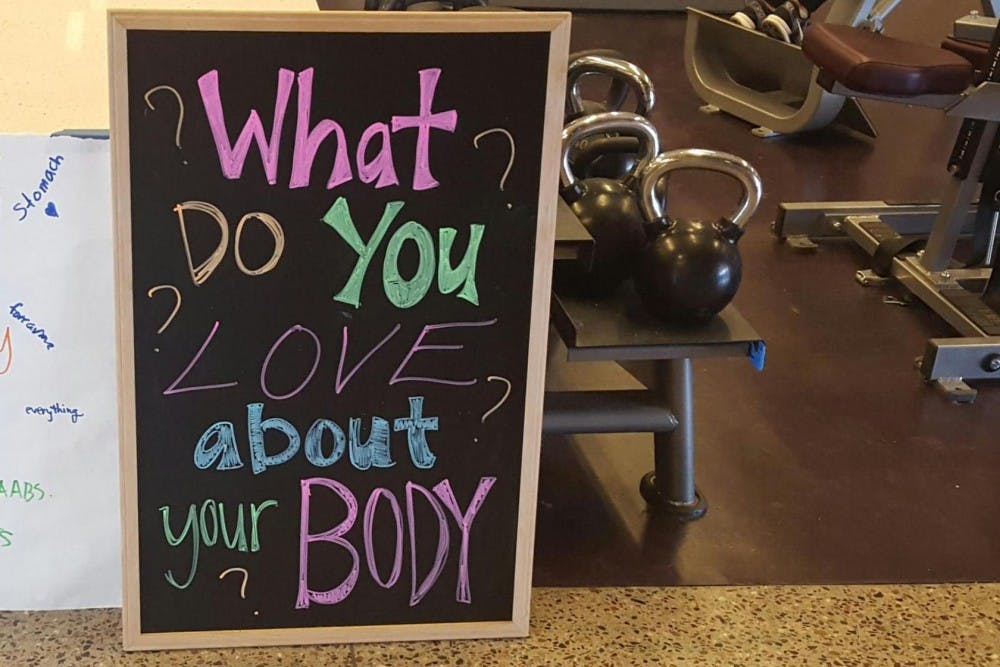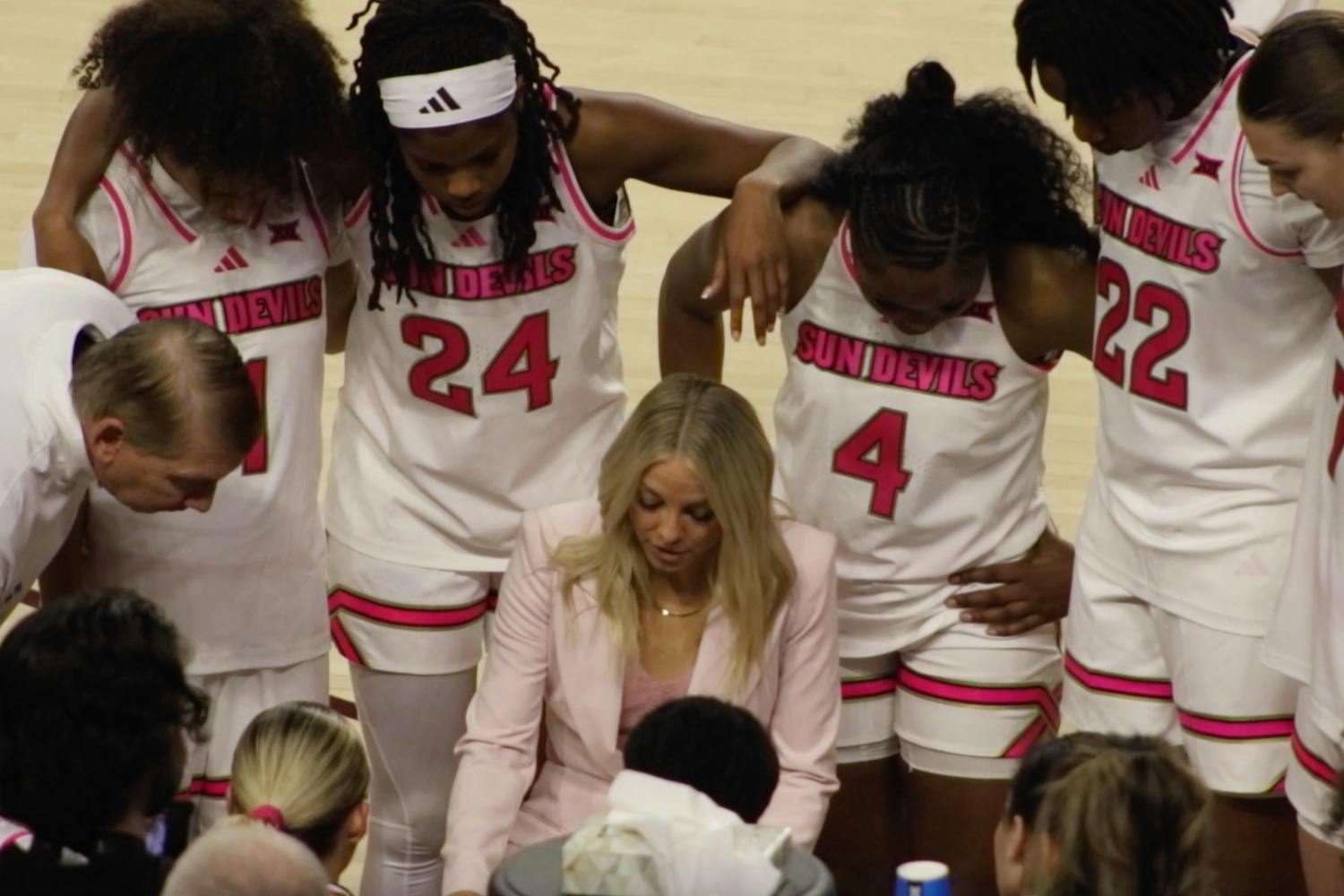We hear about the girls who go days and weeks without eating. We hear about the girls who find themselves leaning over a toilet after every meal. We hear about the girls who overeat, only to hate themselves into starvation mode the next day. The ones we don’t hear about are the majority: the people, not just girls, who are obsessively monitoring what goes into their bodies, and what their bodies expel, in silence.
If you look at the statistics, it is evident that not only do we as a country have a problem, but we as a college population are also spiraling into an abyss of body shaming and self-disapproval.
The numbers vary greatly from website to website and from study to study, but the truth of the matter is: Eating disorders are silent. However, one popular statistic is that over half of females and one third of males in their adolescence use unhealthy and restrictive ways of monitoring their weight. Typically, victims, especially broke, busy college students, do not find themselves publicly admitting to or seeking help for an eating disorder.
Many sufferers do not even realize that their behavior is related to a disorder to begin with. Bulimia, anorexia and binge-eating disorder are the easy ones to pinpoint and describe. But another harder-to-diagnose issue is surfacing: orthorexia.
Orthorexia is definitively “the fixation on righteous eating.” Steven Bratman, MD, developed the term in 1996 when he realized his patient's psyches were being damaged by the obsession with eating well and exercising often.
This can be very confusing for anyone who’s never been there, but once you get into a "healthy living" mode, it’s hard to stop. If you go so far to allow your healthiness to become the epitome of your self-worth, you will go to any length to maintain your physical “purity,” even if it means losing yourself.
Natalia Zunino, Ph.D., of the American Anorexia and Bulimia Association, Inc., explains regular dieting is the leading cause in the development of any eating disorder. And 35 percent of “regular dieters” become “pathological eaters.”
Unfortunately, those pathological eaters are yet to be deemed ill because of the bright light society sheds on being healthy. In particular, the rise of Paleo dieting since 2011 has contributed to the obsession with eating “clean.” Unfortunately, the truth of the matter is eating 100 percent of your food directly from the earth is nearly impossible on a college campus. The result of the lack of access to healthier food can create a painful war between eating at all and eating well. Regardless of which side of the internal argument triumphs, the human trapped between the options will likely experience great defeat.
Truthfully, as a student at ASU, I can applaud the University for making an effort to combat poor self-image and promote healthy lifestyles. For many years now, ASU has held a “Body Pride Week” that is intended to educate students on the value of self-worth and realistic health goals. They have hosted de-stress events, and introduced Well Devils, which are intended to serve as student educators on mental and physical health.
As a student, I can see the value in their effort, but as a person who has struggled with a spectrum of eating disorders, it isn’t enough. I participated in a "Love Your Selfie" exercise on the Downtown Phoenix campus last week. I let them take a picture of me with a Polaroid camera, and wrote on the bottom of the photo something I "love" about myself. I wrote, "I love my glasses," took my free T-shirt and walked away.
In theory, these types of events are supposed to speak to people like me, or students at risk for negative self-image, but until I sat down to write this, I hadn't thought about the exercise since.
"Love yourself. Here's a T-shirt. Feel better." Little trivializing, right? I know they have conducted more events, like a dinner and optional body evaluations, but these issues are significant psychological problems and in order to be hindered, the emotional disturbances must be addressed. A T-shirt cannot change the negative compulsions.
ASU was just voted the most innovative school in the nation, so here’s an idea: Don’t make body positivity an option. Health should not just be a blip in our high school careers. For the rest of our lives, all we have is our bodies. I am inviting ASU to consider making personal, mental and physical health an integral piece of each major map, not just a dismissible extracurricular option.
Related Links:
Five YouTube personalities that focus on body positivity, not body shaming
Feminism provides body positivity for everyone
Reach the columnist at Kendra.Penningroth@asu.edu or follow @KPenningroth on Twitter.
Like The State Press on Facebook and follow @statepress on Twitter.
Editor’s note: The opinions presented in this column are the author’s and do not imply any endorsement from The State Press or its editors.
Want to join the conversation? Send an email to opiniondesk.statepress@gmail.com. Keep letters under 300 words and be sure to include your university affiliation. Anonymity will not be granted.




